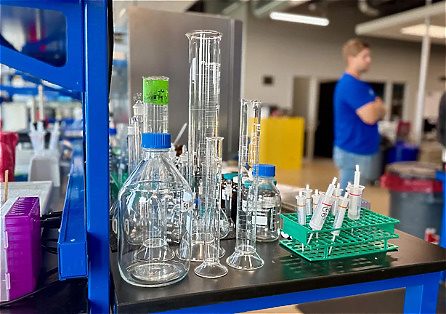A federal lifeline for South Dakota innovation is at risk

In just a few weeks, one of the federal government’s most effective tools for boosting rural economies could disappear.
The Small Business Innovation Research program — a funding pipeline that has supported countless scientific and medical breakthroughs that grow the economy and save lives — will expire on Sept. 30 unless Congress acts.
Here in South Dakota, the program is a lifeline for researchers working on next-generation cancer therapies, for startups developing tools to combat livestock diseases, and for communities hoping to attract high-paying, advanced manufacturing jobs. The program is vital to the state’s patients, researchers, and entrepreneurs.
South Dakota is a proud beneficiary of that model, and an active partner in sustaining it. Over the past decade, dozens of South Dakota companies — many of them spinouts from university labs or small teams of rural entrepreneurs — have secured awards that helped turn bench science into real-world solutions. To strengthen these efforts, the state offers additional $25,000 grants to select awardees, giving startups a boost as they refine their technologies and begin to commercialize them.
This joint support is already delivering results across the state.
Take a look at SAB Biotherapeutics in Sioux Falls. SAB used a $1.42 million Small Business Innovation Research grant to develop immunotherapies that harness genetically engineered cattle that produce human antibodies to treat influenza. When the COVID-19 pandemic struck, SAB was ready to respond, using its antibody platform to help develop countermeasures against the virus. That research wouldn’t have advanced without the initial support.
OmegaQuant, another Sioux Falls biotech, used part of its over $833,000 in awards to develop tests that can predict dementia risk, empowering patients with greater control over their health.
The program has also helped fund breakthroughs in animal and agriculture sciences — industries where South Dakota has a competitive edge.
These inventions power a burgeoning sector. South Dakota’s bioscience sector employs more than 7,000 people across 800 businesses. And employment has grown by nearly 7% since 2019. Programs like Small Business Innovation Research are critical for maintaining this momentum.
Failing to reauthorize the program by the Sept. 30 deadline would stall promising research. It would cut off a vital funding source for dozens of small businesses trying to survive the “valley of death” between discovery and commercialization. And it would undermine our ability to compete in the bioscience, energy, artificial intelligence, and other strategic industries.
Op-ed Sept. 10, 2025 southdakotasearchlight